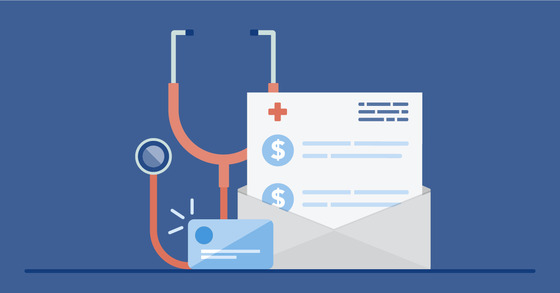As the cost of healthcare continues to rise, millions of Americans find themselves struggling to pay for essential medical treatments. Financial institutions are capitalizing on this trend by marketing high-cost specialty financial products, such as medical credit cards and installment loans.
Source: Consumer Financial Protection Bureau
The CFPB has heard troubling accounts of these products being aggressively pushed onto people who couldn’t afford the required payments or who should qualify for financial assistance. In light of these reports, the CFPB is examining how financial institutions market their products to healthcare providers.
As the cost of healthcare continues to rise, millions of Americans find themselves struggling to pay for essential medical treatments. Financial institutions are capitalizing on this trend by marketing high-cost specialty financial products, such as medical credit cards and installment loans. The Consumer Financial Protection Bureau (CFPB) has heard troubling accounts of these products being aggressively pushed onto people who couldn’t afford the required payments or who should qualify for financial assistance.
In light of these reports, the CFPB is examining how financial institutions market their products to healthcare providers. The CFPB has initially found that financial institutions market these products to providers as a way to receive payments faster and more easily than they would from insurance, or even to get people to agree to costly medical care that they would not otherwise sign up for. The lenders give providers different incentives to enroll more patients in products with different payment terms, even as the financial institution takes a significant cut of patients’ payments. We are continuing to assess how financial institutions offer these products and whether they put borrowers at risk.
Medical payment products may increase financial burden
Consumers use medical payment products for a variety of healthcare expenses, including treatments received in hospitals or elsewhere. People are typically offered medical payment products in a healthcare provider’s office, as highlighted in a May 2023 CFPB report and July 2023 Request for Information issued jointly with the U.S. Departments of Health and Human Services and Treasury. Recent research from the CFPB has revealed that these products often come with interest rates exceeding 25%, making them more expensive than most other forms of payment.
Medical credit cards often have a “deferred interest” feature, which is commonly misunderstood by consumers: complaints received by the CFPB suggest that many consumers are unaware that they can be charged interest retroactively for the entire period if they do not pay off their full balance before the end of the promotional period. The CFPB has also heard from people who were offered medical payment products when incapacitated and unable to make informed decisions, when they should have been eligible for financial assistance, or without having been adequately explained the products’ features.
Financial institutions incentivize healthcare providers to enroll more people
The CFPB is looking at financial institutions’ relationships with healthcare providers with respect to these products, and has begun to gather information directly from the institutions. The CFPB will be monitoring the incentives, marketing materials, and oversight financial institutions are providing to healthcare providers. We are also continuing to work closely with the U.S. Departments of Health and Human Services and Treasury on this issue.
Share your experiences with medical payment products
The CFPB encourages healthcare providers to share their experience with these products through either the CFPB’s “Tell Your Story” portal or by reporting potential industry misconduct. The Consumer Financial Protection Act expressly protects employees of covered persons or service providers and their representatives from discrimination when the employee or representative provides information to the CFPB or any other law enforcement agency about possible law violations.
If you have experienced problems with the way a medical credit card, loan or other product was offered, or problems with the product itself, you can submit a complaint.






